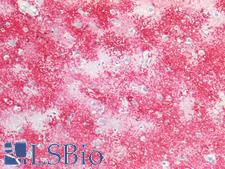Login
Registration enables users to use special features of this website, such as past
order histories, retained contact details for faster checkout, review submissions, and special promotions.
order histories, retained contact details for faster checkout, review submissions, and special promotions.
Forgot password?
Registration enables users to use special features of this website, such as past
order histories, retained contact details for faster checkout, review submissions, and special promotions.
order histories, retained contact details for faster checkout, review submissions, and special promotions.
Quick Order
Products
Antibodies
ELISA and Assay Kits
Research Areas
Infectious Disease
Resources
Purchasing
Reference Material
Contact Us
Location
Corporate Headquarters
Vector Laboratories, Inc.
6737 Mowry Ave
Newark, CA 94560
United States
Telephone Numbers
Customer Service: (800) 227-6666 / (650) 697-3600
Contact Us
Additional Contact Details
Login
Registration enables users to use special features of this website, such as past
order histories, retained contact details for faster checkout, review submissions, and special promotions.
order histories, retained contact details for faster checkout, review submissions, and special promotions.
Forgot password?
Registration enables users to use special features of this website, such as past
order histories, retained contact details for faster checkout, review submissions, and special promotions.
order histories, retained contact details for faster checkout, review submissions, and special promotions.
Quick Order
PathPlusTM APC Antibodies
Adenomatous polyposis coli (APC) is a gene frequently mutated in colorectal cancer and inherited mutations in this gene are causative for classical familial adenomatous polyposis. This gene is involved in the regulation of cell adhesion through its interaction with CDH1 (e-cadherin) and CTNNB1 (beta-catenin) via the WNT signaling pathway, and it is considered a tumor suppressor. The loss of functional APC protein (often alongside mutations in TP53 or KRAS) is a frequent event in colorectal cancers and is associated with cellular over-proliferation, chromosomal instability and carcinogenesis. In immunohistochemistry of normal tissue, APC has membranous and cytoplasmic positivity in most tissues throughout the body.
References: N Engl J Med. 2009 Dec 17;361(25):2449-60, PMID: 20018966; Gastroenterology. 2010 Jun;138(6):2059-72, PMID: 20420946;
1 PathPlusTM Antibody

☰ Filters
Products
Antibodies
(1)
Type
Primary
(1)
Target
APC
(1)
Reactivity
Human
(1)
Mouse
(1)
Rat
(1)
Application
IHC-P
(1)
WB
(1)
Peptide-ELISA
(1)
Host
rabbit
(1)
Product Group
PathPlus Cancer
(1)
Isotype
IgG
(1)
Clonality
polyclonal pc
(1)
Format
Unconjugated
(1)
Epitope
aa2794-2843
(1)
Publications
No
(1)

Cancer
APC Rabbit anti-Human Polyclonal (aa2794-2843) Antibody
Mouse, Rat, Human
IHC-P, Peptide-ELISA, WB
Unconjugated
50 µl/$375
Viewing 1-1
of 1
product results










